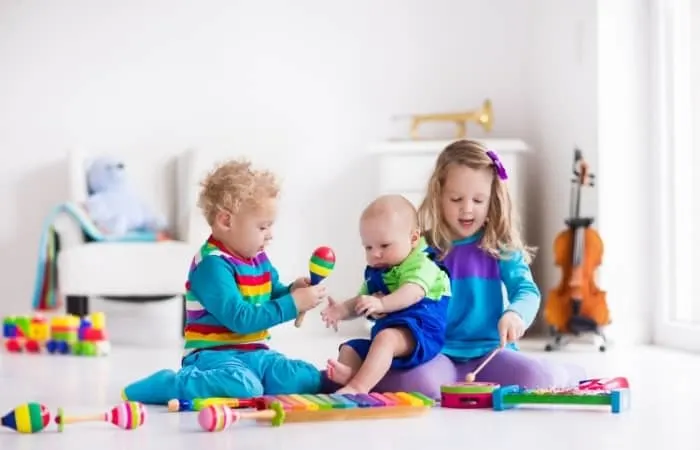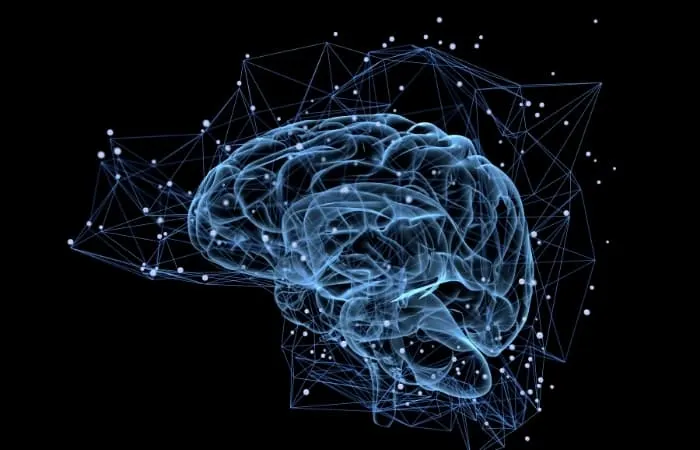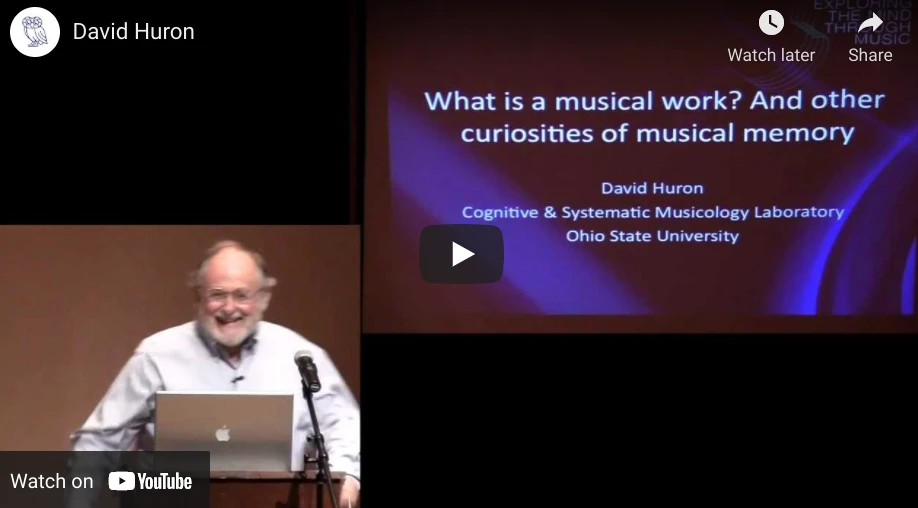Music has existed since the beginning of time. People have always sung songs danced to music, and played musical instruments together.
Music is an integral part of our lives, yet it’s often taken for granted.
In this blog post, we’ll explore why music is important; and how it can be used in various ways to help improve our lives.
Music Is A Universal Language
Music is a universal language that connects people all over the world. It has no borders or boundaries, so it’s easy for us with our differences to find common ground.
This is because of its ability to transcend cultural barriers and connect people on an emotional level, which can be especially important when is trying to make new friends.

It also helps us understand different cultures better by exposing listeners who may not have been exposed before (or at least were less likely) to music from other countries. This creates empathy between groups through shared experiences like listening or dancing to music together.
Music brings diverse communities closer,” says Dr. David Huron, adding, “music makes life more enjoyable.” So whether your goal is making peace across nations using song lyrics written about love or uniting in a field at a music festival, music can be a powerful tool in bringing people together whilst helping to develop social skills.
Music Can Help You Relax And De-stress
There’s nothing quite like putting on your favorite song when you feel stressed to help you relax; in fact, studies have shown that listening to music can help reduce stress levels.
It’s been proven scientifically, through the use of MRI scans and EEGs (brain monitors), that when we listen to or play an instrument, it releases dopamine in our brain. Dopamine is a neurotransmitter that helps control your mood, so this means you’re actually making yourself feel better!
This makes sense because many people find themselves feeling happier after listening to music for a while. But why?

It turns out there are two types: “chill” hormones such as serotonin released during pleasurable activities like eating chocolate while others release adrenaline causing us to become more alert.”
Music has both effects on listeners depending on what type their body needs at any given moment; hence it’s great at helping you chill out when things are starting to get on top of you.
Music Can Make Your Day Go By Faster
If you are anything like me, then music is the constant soundtrack of your day-to-day life. Whatever I’m doing, I always have music on in the background, especially instrumental music. It really helps the day seem to go faster, especially if I’m carrying out a mundane task.
This is because it distracts you from the task at hand and instead focuses your attention on something more enjoyable.

For example, if I’m ironing, then listening to music is a great way of making it feel like less time has passed because my mind isn’t focused solely upon what’s happening in front of me.
Rather than thinking about how long this will take and wishing it could be finished quicker, I can take my time as it’s not actually feeling like an unenjoyable chore.
If studying, then music is a great way of making you feel more motivated and concentrating.
It’s not just the background music that helps with this; it can also be because listening closely means you’re really focusing on what someone else has created rather than your own thoughts, which are often distracting when trying something new or difficult for yourself.
Music Is Good For Brain Development
It has been proven that music plays a key role in brain development. This is because it helps with the nurturing of language, motor skills, and emotional intelligence.
It also has a positive effect on memory because it can help you remember things better by associating them with familiar or meaningful pieces of music.
Children listening to music from an early age can help with their language skills and improve their motor skill development.
The rhythm of the music also helps children develop coordination, timing and has been proven to help sensory integration, which is important for developing fine motor skills.
Music education at an early age will have long term benefits on cognitive abilities such as memory recall later into life when they become adults; this could be due partly to hearing new sounds but not being able to recognize what’s happening visually, so are forced to use other senses more intensely than usual.

Music can also help children develop their language skills, as music and words are both made up of sounds combined differently.
Music helps with reading development, too, as it improves literacy by introducing a new vocabulary; when a child listens to or sings along to a nursery rhyme, they will see how certain letters make specific sound patterns that will aid reading development and phonics (the way we use our mouths).
You have probably heard the phrase how a child has a brain like a sponge that absorbs information. This is why it is a fantastic opportunity to give young children the opportunity to learn a musical instrument. They will pick up the skill much easier than adults undertaking musical training.
Music Can Make You Feel Better When You Are Feeling Down
Besides helping you relax, music is excellent at picking you up if you are feeling down, and why certain music pieces can have a really uplifting effect on your mood.
This is particularly true for people who feel negative, as it can help them feel better about themselves and have a more positive outlook. Certain songs can invoke happy memories of dancing with friends or other happy occasions.

Music can be a form of release for you and help eliminate any pent-up emotion that is causing your mood. This is because it allows the listener an outlet in which they feel safe enough to express themselves without fear of being judged by others around them who may not understand what has happened during their day.
Music Is Good For Creativity
Music breeds creativity in people; whether a musician, an artist, a dancer, or someone who has a different creative outlet, music can be truly inspirational.
From a musician’s perspective, I often take inspiration from other pieces of music, and I guess that’s a huge reason why music styles progress; taking someone’s style and adding your own twist to it.

A painter might use music to inspire different painting styles; for example, abstract art is often inspired by jazz or blues. These genres are typically more improvisational than others which can lead to unexpected results.
Dancers will find themselves dancing along subconsciously (or consciously) and moving their bodies differently depending on what they are hearing… And that’s the great thing about listening to music whilst being creative; your subconscious often takes over, and you flow with whatever you are listening to, and before you know it, you have created something.
Music Can Calm Your Nerves Before A Big Event Or Performance
There’s nothing worse than being nervous before a big event or performance; it really can leave us feeling paralyzed with fear. Luckily for us, listening to music can help us with that too.
As mentioned earlier, music can be great at helping you relax, so using it to calm your nerves and get you in the right frame of mind before you undertake something stressful can be hugely beneficial.
Athletes listen to their favorite playlists to get pumped up before a big game or race; musicians use music to get into the right headspace before hitting the stage.
Some people listen to music before taking a test that they have been worrying about unnecessarily and are finding it hard to think about anything else.

Music can be a great way to get in the right mindset before embarking on something stressful or fearful. It’s also worth mentioning that music is one of your best friends if you have an exam or speech coming up soon.
It might not seem like much at first, but when things start getting tough, having some music playing will help take away any distractions, so all attention remains on what needs doing instead – which makes for less stress overall!
As we know from reading earlier in this article, when listening to music, we release dopamines that put us in a happier state of mind. So next week, when things start getting stressful at work, try putting on some relaxing tunes before heading into an important meeting to calm any nerves.
Music Has Therapeutic Effects On The Brain
By now, I’m sure you’ve come to realize how good music is for your well-being. In fact, it’s been proven to have therapeutic effects on the brain.
The way music affects the brain is through a process called entrainment. Basically, this means that it synchronizes your body’s natural rhythms with external stimuli like sound and light.

Scientists have conducted extensive research into the therapeutic effects music has on the brain and have discovered that listening to music can help with various emotional and physical problems and regulate your moods.
It can help reduce anxiety and stress and has been shown to improve moods in people with depression, post-traumatic disorder (PTSD), and autism spectrum disorders. It’s also proven that music therapy helps patients recover from strokes more quickly than those who don’t have the treatment.
This brings us to our penultimate reason why music is important.
Music Helps With Memory Recall In The Elderly
I’m sure you’ve heard an elderly loved one say that their memory isn’t quite what it used to be, and this is due to the natural aging process. But this doesn’t have to be a bad thing because there are many ways that music can help with memory recall in older adults.
One study found out how listening to just 12 minutes of Mozart helped improve participants’ memories as well their moods after they listened, while another experiment showed improved performance on verbal tests from those who were exposed only briefly (12 hours) over six weeks – so don’t underestimate its power either way.

Research also suggests that music can be used as a form of therapy for dementia or Alzheimer’s disease. By playing familiar songs, they may have heard when younger helps them feel more at home again, which is important as these diseases cause patients’ memories about their pasts to fade away completely over time.
So, if you’re looking at your loved one struggling or forgetting things more often than not, then maybe try playing some songs together.
Listening To Music Is Enjoyable
Our final reason why music is important is quite simply it’s enjoyable and brings us pleasure.
I love music, from collecting it on vinyl, listening to it as loud as possible, to making my own tracks; music is one of life’s joys. From those goosebumps you get from hearing some euphoric strings to the way a bassline can rattle your rib cage, there’s nothing quite like it.

Everyone has their own favorite genre or style, and that’s the beautiful thing about music; there is no right or wrong type of music or right or wrong way to experience it.
From the person lying on their bed listening to classical music on a pair of headphones to the person in the middle field with fifty thousand people listening to Drum & Bass, it’s all about the pleasure it brings.
Why Is Music Important? – Final Words
I’ve always known how important music is, but sitting down and writing this blog, makes me realize I underestimated the extent of just how much. It’s more than just a hobby or something to do when you’re bored; music is an important part of our everyday lives. It can make us feel happy and excited; it reminds people about their pasts to not forget who they are.
Music has always been there, even if we didn´t realize how much until now…
So I hope this blog post will encourage readers who have never thought twice to understand why someone listens to certain songs repeatedly and thinks about the benefits that person might be getting from doing so.
It’s also a good opportunity to think about what music means to you, and maybe grab your favorite piece of music, sit back, relax, and press play… Or maybe crank it up and jump around to it… After all, there’s no right or wrong way to do it!


 Want to connect with other music producers for help and guidance?
Want to connect with other music producers for help and guidance?